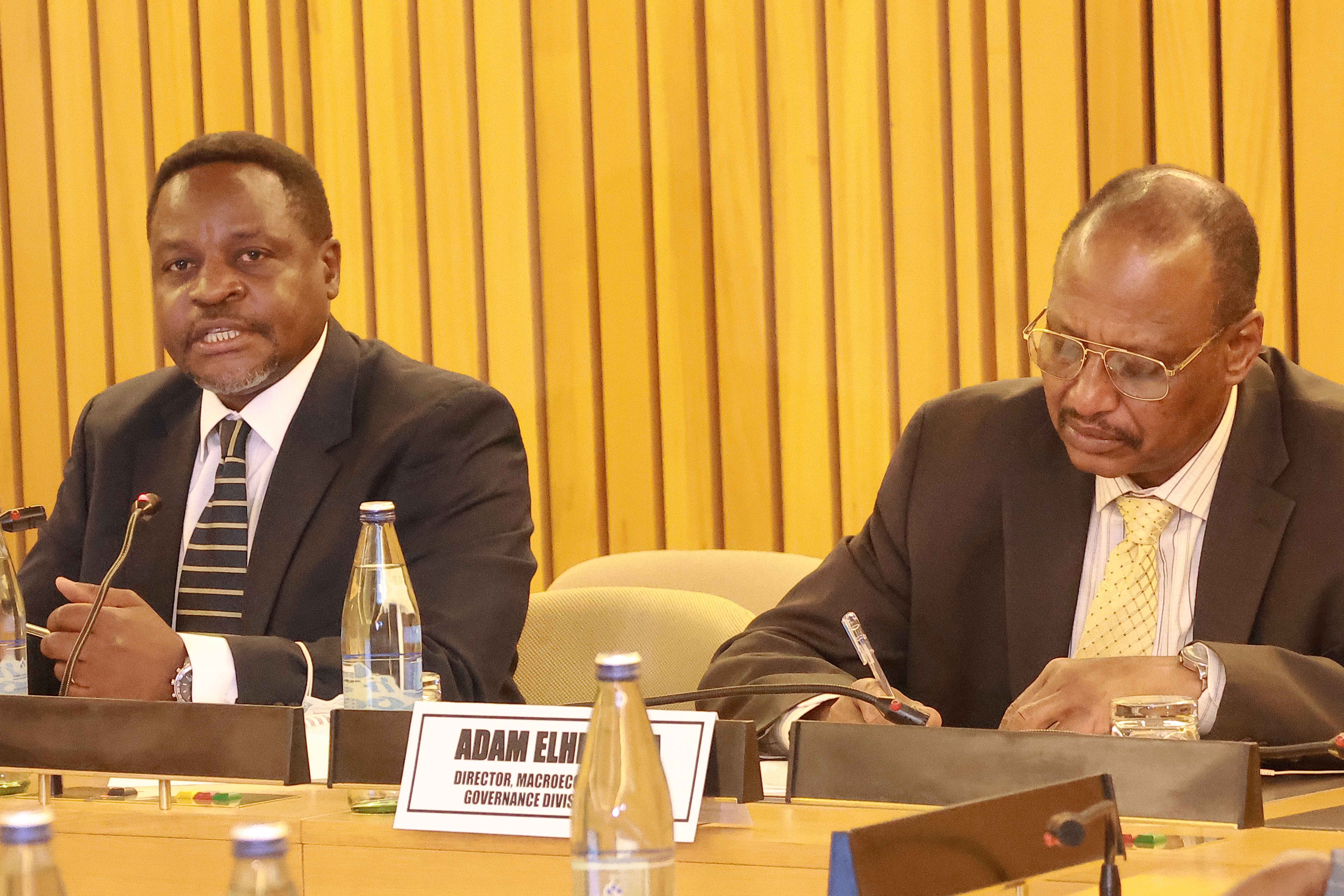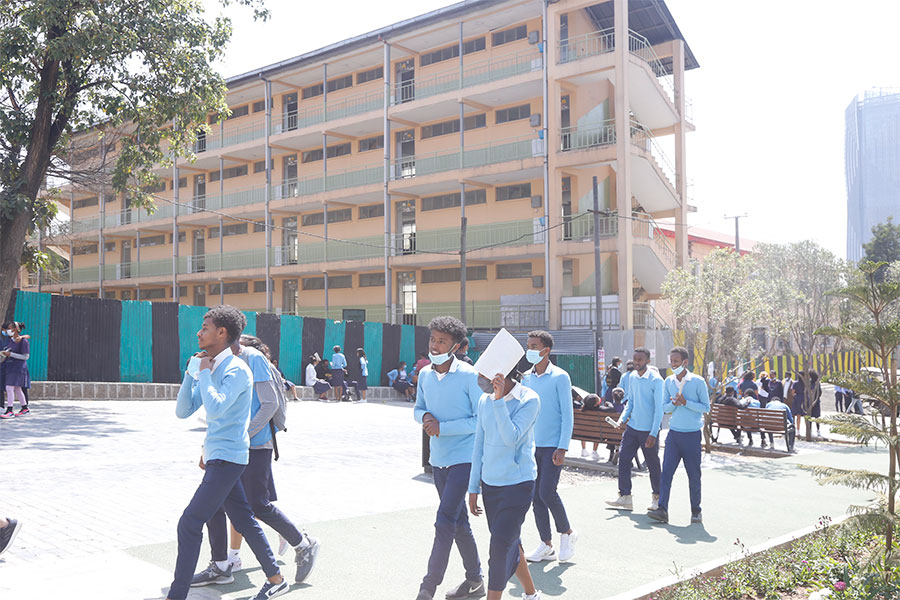
Viewpoints | May 23,2021
Nov 21 , 2020.
Armed conflict is raging on Ethiopia’s northern front. On the economic front, business appears to be as usual. Few instances are as emblematic of the latter as the ongoing liberalisation in the telecom sector, which is going according to plan.
The Ethiopian Communications Authority is on the cusp of approving directives that will allow it to launch a request for proposal to issue two new telecom licenses. Consultative discussions are being held, and expressions of interest from telecom operators around the world have been received. It is a process that is not being allowed to be interfered by the political reality of the country: violence in massive scale, loss of lives, destruction of properties and influx of refugees running for their lives to Sudan.
Business is not as usual. Implicit in economic policymaking and governance – indeed in Finance Minister Ahmed Shide’s budget speech – is that political conditions are relatively stable and reliable that citizens continue to buy, sell, produce, distribute and consume.
It would assume that transportation and communications lines in one of the 10 regional states of the country are functional. Nowhere in the Finance Minister’s speech is there the presumption that the state’s resources -- from messaging to mobilisation of the armed forces -- would need to be reoriented toward active conflicts that involve aerial bombardment and firing of rockets. Neither was there accounting for the increasing numbers in refugees currently taking place and the relocation and rehabilitation this would entail. The loss of infrastructure neither figured in the economic planning of the federal government. It is impossible to profess that all of these would not have a bearing on economic outcomes for years, if not decades, to come.
The administration of Prime Minister Abiy Ahmed (PhD) should have no illusions that investors will continue to invest as planned, that businesses will expand as expected or that consumers will follow their typical saving and consumption behaviour. Business is not usual.
It is like inflation: whatever its cause, a fall in the purchasing power of a currency incentivises people to get rid of their liquid assets, worsening the inflation as a result of the ensuing uncertainty. The same rule applies here. The less uncertain a view citizens have of the ongoing conflict, the likelier that they have confidence in future returns in whatever market they are engaged in. It is then critical from the perspective of the administration to contend that the engagement of forces between the federal and Tigray regional governments is not a war per se but a law enforcement operation that would at best be an inconvenience that would be resolved shortly.
This may be true: the conflict may be resolved early. But reality is stubborn. Even an early resolution is bound to cast a long shadow over the economy for years to come. It is not hard to see this given how almost every single international media outlet has been reporting on the conflict, though many have been careful not to refer to it as a civil war. Nonetheless, almost all warn of the slippery slope Ethiopians find themselves in and the potential for civil war.
Even if peace and stability reign soon, it would be a while before the damage that has already been done to the image of the country can be redressed and investors can be persuaded to engage in Ethiopia’s opening economy.
At home, the conflict incentivises the flight of skilled human resources and capital. It will inhibit consumption, lowering aggregate demand; hamper national saving, affecting investment; and lead to the disengagement of local businesses. In response, the state’s resources will have to be redirected to policing this behaviour rather than creating an enabling environment for the productive sectors of the economy.
Worse still is the setback to gains in citizens wellbeing and infrastructure. Human development case studies, unsurprisingly, show correlations between cyclical conflicts and poverty. Indicators of wellbeing, from household incomes to education levels and life expectancy at birth, are threatened when attention and resources are subsumed by conflict.
This is already true on several fronts. The complete communications and transportation blackout in Tigray Regional State means that there is little, if any, business activity being carried out. This is a direct loss to national productivity. No less worrying is the destruction of property and infrastructure. Both sides of the conflict may claim that the other side is responsible for the damage, but both admit that infrastructure has become the collateral damage.
Making the situation more dire in the Tigray region is the fact that the area is known for its recurrent low levels of food production and high levels of inflation. It is also a region with one of the highest poverty levels in the country, which has not seen poverty reduction between 2011 and 2016, according to the World Bank’s poverty study. As the conflict continues and an early resolution is not brought about, it is likely to have economically traumatised a region that already has one of the worst outcomes in the country.
Critical to realising is that this is not the first disaster to have struck the country this year. The Novel Coronavirus (COVID-19) pandemic, desert locust outbreak and several explosions of violence and disturbance across the country have all disrupted day-to-day life and business activities. The International Monetary Fund (IMF) already predicts a flattened growth rate in the next year.
Claiming that times are normal now will thus be faced by cold reality. There needs to be an economic policy rethink that contextualises the challenges wrought by the political impasse. Silencing the guns should be the first priority, to be followed by pressure the warring parties to sit down for talks and compromise.
Arguably, Ethiopia still does not have a wartime economy – there is no rationing or conscription, though the case may be different in areas still under the control of the forces of the Tigray People's Liberation Front (TPLF).
It is also the case that the main industrial and commercial centres of the country; the logistical routes; and the most agriculturally productive areas of the country, many of which are concentrated in the central and southern parts, have been spared the fighting. Ensuring the provision of public goods, such as the safety of individuals and the protection of property, remains critical for these centres to continue functioning. The best way of assuring this is, of course, to find a resolution to the fighting, which would allow resources not to be diverted away from law enforcement efforts in areas the stability of which Ethiopia's economy depends on.
Meanwhile, businesses will only operate as usual as the current administration would like to see when it can ensure the supremacy of the rule of law in the rest of the country.
Just as important is creating an enabling and safe condition for humanitarian services to continue across the country, more importantly, in the war-ravaged areas of Tigray. This will be of urgent importance, given the plausibility that the conflict could drag on and resources for social welfare would be depleted. The only way of ensuring the gap is filled by assuring the safety of humanitarian transportation lines and provisions.
The case for preserving the economy from the worst effects of the conflict is urgent, because it is a determining factor in averting future devastation. Every political change, justified or not, is a source for new resentment and feeling of marginalisation, both of which are tied up deeply with economic outcomes. Ensuring that citizens will be able to have a sense of agency in the country as productive members of society can only be possible through dialogue and negotiation. Ethiopia’s problems continue to flow from its political challenges, which then go on to wreck an economy that has great potential.
There is a reason that Ethiopia has seen in its soil an armed conflict just close to three decades after it closed the chapter on the last one – lack of a political settlement. What is occurring now should not obscure the need for negotiation and compromise. In fact, the conflict and the economic havoc it would create should be used as an argument for it.
PUBLISHED ON
Nov 21,2020 [ VOL
21 , NO
1073]

Viewpoints | May 23,2021

Radar | Jan 27,2024

Agenda | Nov 13,2021

Fortune News | Jul 15,2023

Viewpoints | Jun 24,2023

Viewpoints | Jun 17,2023

Viewpoints | Aug 18,2024

Editorial | Jul 01,2023

Viewpoints | Oct 31,2020

Viewpoints | Feb 27,2021

Photo Gallery | 170457 Views | May 06,2019

Photo Gallery | 160694 Views | Apr 26,2019

Photo Gallery | 150335 Views | Oct 06,2021

My Opinion | 136248 Views | Aug 14,2021

Dec 22 , 2024 . By TIZITA SHEWAFERAW
Charged with transforming colossal state-owned enterprises into modern and competitiv...

Aug 18 , 2024 . By AKSAH ITALO
Although predictable Yonas Zerihun's job in the ride-hailing service is not immune to...

Jul 28 , 2024 . By TIZITA SHEWAFERAW
Unhabitual, perhaps too many, Samuel Gebreyohannes, 38, used to occasionally enjoy a couple of beers at breakfast. However, he recently swit...

Jul 13 , 2024 . By AKSAH ITALO
Investors who rely on tractors, trucks, and field vehicles for commuting, transporting commodities, and f...

Oct 5 , 2025 . By NAHOM AYELE
In Meqelle, a name long associated with industrial grit and regional pride is undergo...

Oct 5 , 2025 . By BEZAWIT HULUAGER
The federal government is set to roll out a new "motor vehicle circulation tax" in th...

Oct 5 , 2025 . By NAHOM AYELE
The Bank of Abyssinia is wrestling with the loss of a prime plot of land once leased...

Oct 5 , 2025 . By BEZAWIT HULUAGER
The Customs Commission has introduced new tariffs on a wide range of imported goods i...